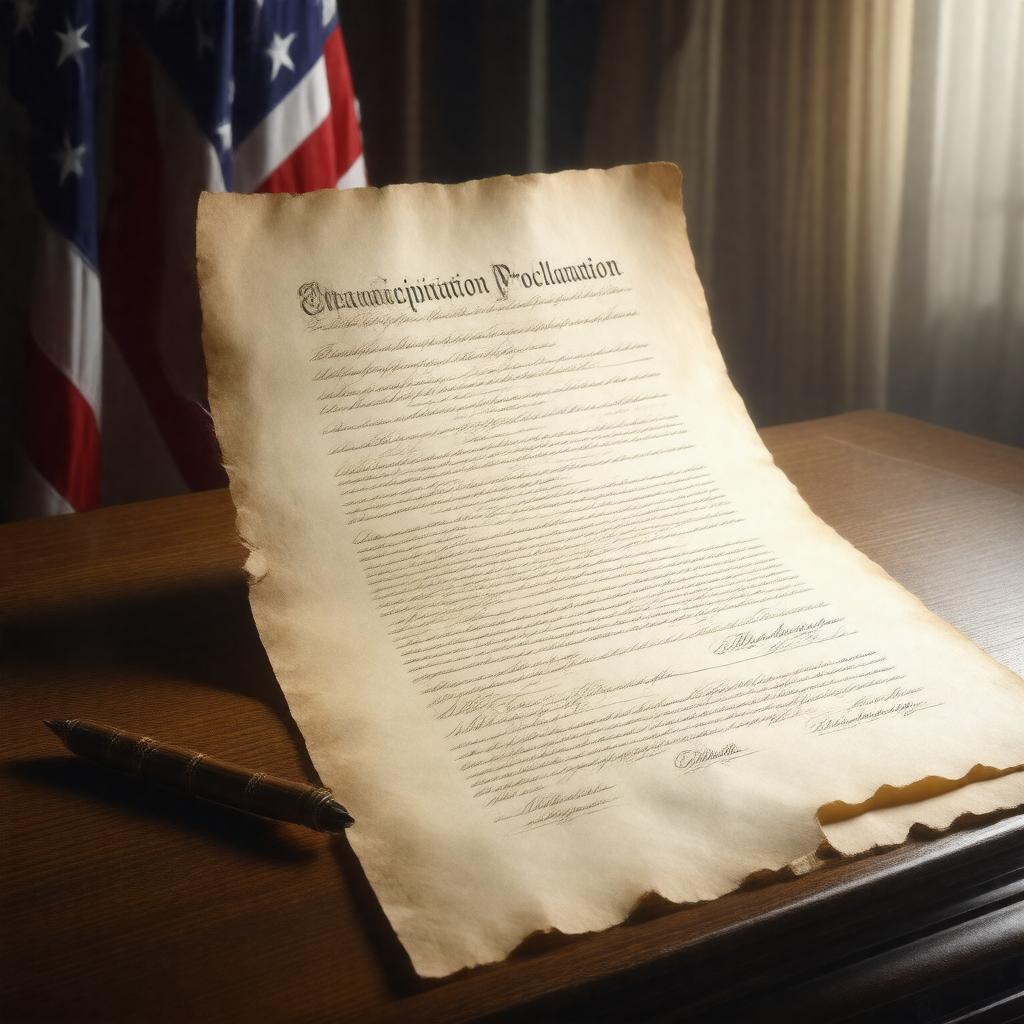
AI-created image
Statements (24)
| Predicate | Object |
|---|---|
| gptkbp:instanceOf |
gptkb:Executive_Order
|
| gptkbp:announced |
1862-09-22
|
| gptkbp:appliesTo |
border states loyal to the Union
|
| gptkbp:country |
gptkb:United_States
|
| gptkbp:effect |
freed slaves in rebelling states
|
| gptkbp:followedBy |
gptkb:Thirteenth_Amendment_to_the_United_States_Constitution
|
| gptkbp:fullTitle |
gptkb:Proclamation_95
|
| gptkbp:influenced |
gptkb:activist
|
| gptkbp:influencedBy |
Union military strategy
|
| gptkbp:language |
English
|
| gptkbp:locationSigned |
gptkb:Washington,_D.C.
|
| gptkbp:mediaType |
gptkb:manual
|
| gptkbp:precededBy |
gptkb:Confiscation_Act_of_1862
|
| gptkbp:purpose |
abolish slavery in Confederate states
|
| gptkbp:relatedTo |
gptkb:American_Civil_War
|
| gptkbp:signedBy |
gptkb:Abraham_Lincoln
1863-01-01 |
| gptkbp:significance |
milestone in abolition of slavery
|
| gptkbp:subjectOf |
historical analysis
public celebrations (Juneteenth) |
| gptkbp:bfsParent |
gptkb:Abraham_Lincoln
gptkb:American_Civil_War |
| gptkbp:bfsLayer |
4
|
| http://www.w3.org/2000/01/rdf-schema#label |
Emancipation Proclamation
|